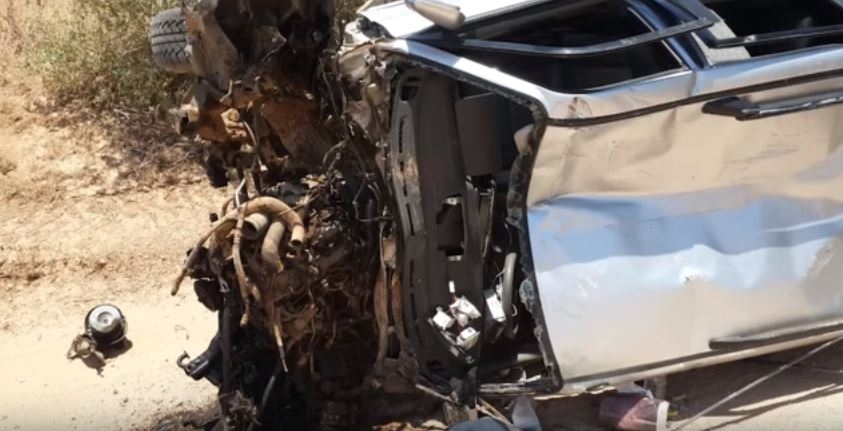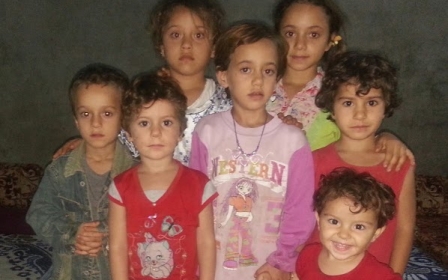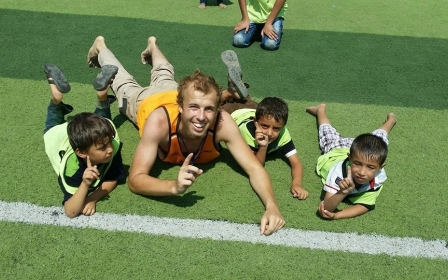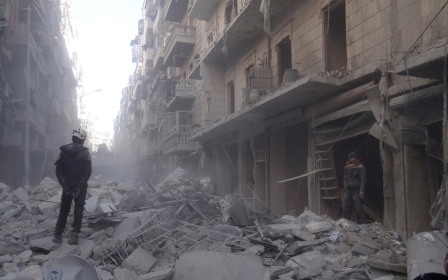US journalist survives probable drone strike in Syria

A US journalist reporting from rebel-held northern Syria vowed to continue working in the country after escaping death from a probable drone strike targeting the vehicle in which he had been travelling.
Bilal Abdul Kareem, a Middle East Eye contributor, said the car in which he and members of his team were sitting was struck by a missile on Sunday in the countryside of Aleppo province.
He said the missile appeared to have been fired from an unmanned aerial vehicle.
“It must have been hit by some kind of Hellfire missile. I heard nothing coming in. All I know and remember is we were sitting in the car waiting for someone to meet us and then all of a sudden everything went black,” Kareem said in a video posted on Facebook. His work has been featured on CNN, Channel 4 News, the BBC and ITV.
Kareem said he believed his life was saved by body armour he was wearing. No casualties resulted from the strike.
The attack occurred as he sat in the car waiting to interview rebel fighters for his self-produced Face the Truth YouTube series.
“The car was totally destroyed and there was shrapnel everywhere. I was just glad my team were OK and nobody was dead. It was only Allah that made me wear the bulletproof vest that day, as usually it’s hot and I don’t wear it,” he said on Wednesday.
The native New Yorker, a former performing arts university student who became a Muslim in Brooklyn in 1997, went on to study Arabic in Egypt and host a TV talk show in Saudi Arabia. In 2012 he began his current project of documenting the resistance against Syrian President Bashar al-Assad.
“People ask whether I am connected to any particular group. It’s natural, unfortunately, that people want to place everyone in categories. I report on all the groups here in Syria, including those who want Islamic solutions. They are the major force in these Syrian territories. To not report on them would be clear bias in itself.
“I don’t care if you like Nusra, Assad or Obama. I only bring you the news so you can make an informed decision. I don’t see a lot of other journalists around. I plan to continue doing the work we are doing. I’m not going to roll over and play dead for anybody.”
Kareem said another missile strike on Wednesday that landed directly outside the media office where he works killed three people.
I don’t see a lot of other journalists around. I plan to continue doing the work we are doing. - Bilal Abdul Kareem
A building where Kareem and his team had previously worked was destroyed earlier this month, while an air strike two weeks ago narrowly missed members of his team.
It remains unclear who was responsible for Sunday’s strike.
But Moazzam Begg, outreach director of the campaign group Cage, said on Wednesday that targeting journalists is a war crime, warning that US drone strikes had set an “example of impunity” that had encouraged other countries.
The US has conducted drone strikes targeting suspected militants, including those of the Islamic State (IS) group, al-Qaeda, the Taliban and al-Shabab in countries including Afghanistan, Pakistan, Yemen, Somalia, Libya and Syria.
“We do not know at this stage which country is responsible for the drone attack, but it is believed that Russia, Iran, the UK and the US have been operating UAV in the region," Begg said in a statement.
"The fact remains that the United States has set an example of impunity when it comes to drone strikes, and other countries are following suit. Targeting journalists in this way is a war crime.
“Bilal is one of the only accredited journalists in Syria reporting in English on the ground. His material has been widely used by mainstream media, and he has become a powerful voice for the voiceless in the Syrian war. ”
Kareem's work for MEE includes a report on a US air strike that killed five children and seriously wounded two others - all members of the same family - in the northern Syrian town of Atmeh last August.
He has also reported for MEE from rebel-held Aleppo city and Latakia province, and has covered the case of Oliver Bridgeman, an Australian aid worker stranded in the country after his government cancelled his passport and issued a warrant for his arrest.
New MEE newsletter: Jerusalem Dispatch
Sign up to get the latest insights and analysis on Israel-Palestine, alongside Turkey Unpacked and other MEE newsletters
Middle East Eye delivers independent and unrivalled coverage and analysis of the Middle East, North Africa and beyond. To learn more about republishing this content and the associated fees, please fill out this form. More about MEE can be found here.




